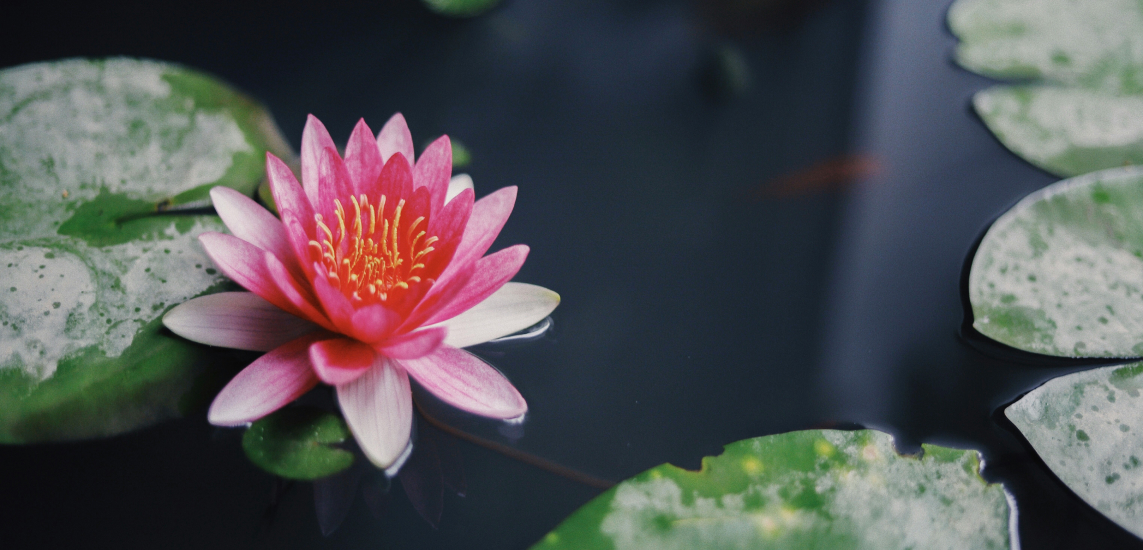It’s not uncommon to experience hiccups in your journey to sobriety. In these moments, it’s important to understand what keeps you anchored to living an alcohol-free life. What fuels your resolve to continue on this path?
In this blog post, you’ll discover a 20-minute guided meditation to help connect you with your “why.” This meditation is not just about quitting alcohol — it’s about discovering a deeper purpose that will guide you in all aspects of life.
Join Gayle Macdonald, a renowned meditation teacher on Insight Timer, as she helps you explore and connect with the powerful reasons behind your decision to stop drinking.
Inspiration behind the meditation to stop drinking
Gayle Macdonald’s inspiration for creating this meditation comes from her personal journey to sobriety. She shares:
“Connecting to my own why or innermost reasons for choosing an alcohol-free life was what supported me most and made the biggest difference in my life. Once I could really understand why I wanted this and was able to connect to how this felt, everything changed.”
This practice is not just something she uses herself but one she consistently applies with her clients. Gayle wanted to share this life-changing practice with others, making it accessible to anyone seeking clarity and strength on their sobriety journey.
A 20-minute meditation to connect with your why and embrace sobriety
Join Gayle Macdonald in this 20-minute guided meditation as she leads you in connecting deeply with your why — the inner motivation that fuels your desire to stop drinking and live a healthier, happier life.
For more guided meditations like this, explore Insight Timer’s largest library of free guided meditations.
Connecting to your why guided meditation script
Step 1: Prepare your space and set your intention
Begin by creating a safe and comfortable space. Wrap yourself in a blanket if you’d like extra warmth, or light a candle to set a calming atmosphere. These small rituals help signal to your mind and body that you’re about to embark on a meaningful practice.
Make sure you have a journal and a pen nearby. Writing down what comes up during the meditation can deepen your understanding and help solidify your intentions. Setting a clear intention at the start, such as wanting to connect with your inner purpose, can guide the meditation and ensure that you remain focused.
Step 2: Find a comfortable position and begin with your breath
Find a comfortable position, whether sitting cross-legged on the floor or lying down with your back well-supported. Place your hands gently on your lap or with your palms facing upwards.
Close your eyes and turn your focus inward. Begin with a deep breath in, holding it for a moment before slowly exhaling. As you breathe in, imagine drawing in warm, loving energy. As you exhale, let go of any tension in your body. Repeat this breathing cycle: Breathe in, hold, and breathe out. Allow yourself to sink deeper into relaxation.
Step 3: Relax your body and mind
As you continue to breathe deeply, bring your attention to different parts of your body. Drop your shoulders, relax your jaw, and let the muscles around your eyes soften. Imagine yourself sinking into the earth, supported and grounded. With each breath, feel your body and mind becoming more at ease, releasing any remaining tension.
This is key to preparing your mind for the deeper work ahead. It allows you to enter a state of stillness and openness, ready to connect with your inner self.
Step 4: Focus on your inner motivations
With your body fully relaxed, turn your attention to your inner self. This is where your “why” resides — the deep, unshakable reason that drives your decision to live alcohol-free. Gayle emphasizes that “connecting deeply to your own ‘why’ or reason for choosing this path and being able to feel this on an emotional level is the most powerful way to make your choice part of you and not just something you want to do.” Allow yourself to reflect on the following questions, not with your mind, but with your heart:
- What do you want?
- What does living alcohol-free mean to you?
- How do you want to feel?
- What does your life look, sound, taste, smell, and feel like without alcohol?
As you contemplate these questions, allow any emotions, images, or memories to surface. There’s no need to force anything. Just let your mind and heart guide you.
Step 5: Connect deeply with your vision
Focus on a vision of your alcohol-free future. It could be a specific moment, a feeling, or an image that represents the life you want to create. This vision is your “why.”
Gayle describes these visualizations as “powerful anchors” that help guide you toward your goals. She shares:
“Having something personal and meaningful as a beacon means that whatever happens, there is something more important to stay true to.”
As you hold this vision in your mind, feel the emotions that come with it. Whether it’s joy, peace, or a deep sense of contentment, allow yourself to fully experience these feelings. This emotional connection is what keeps you anchored in your resolve, even during challenging times.
Step 6: Allow space for reflection and experience
Stay with your vision for a while, allowing yourself to immerse in the emotions and sensations it brings. Keep breathing deeply and slowly, staying connected to your “why.” If your mind starts to wander, gently bring your focus back to your breath and your vision.
Give yourself this time to fully absorb the experience, knowing that these moments of connection are strengthening your commitment to a life without alcohol.
Step 7: Gently return to the present moment
When you’re ready to bring the meditation to a close, begin by focusing on your breath again. Take a few deep breaths in and out, slowly becoming more aware of your body. Wiggle your fingers and toes, feeling the weight of your hands, feet, legs, and arms.
Gently move your head from side to side, stretching if you need to, and gradually bring yourself back to the present moment. When you’re ready, open your eyes and take a moment to reconnect with your surroundings.
Step 8: Reflect and journal
After the meditation, take a few moments to write down anything that came up for you in your journal. Journaling is a powerful way to process your experience and can help to clarify and reinforce your “why.” Consider the following questions:
- What did you feel during the meditation?
- What insights did you gain?
- How does this connect to your desire to live alcohol-free?
Return to this meditation whenever you need to reconnect with your purpose. By regularly engaging with your “why,” you’ll find that your commitment to sobriety becomes stronger and more resilient over time.
This guided meditation script was adapted from Gayle Macdonald’s original meditation, which you can find here.
Tips for beginners from Gayle Macdonald
If you’re new to this type of meditation, Gayle offers simple yet profound advice:
“Trust yourself, trust the process. There is no right or wrong. Be open and try to relax into it and go with whatever comes up.”
She also emphasizes the importance of consistency. Showing up regularly for yourself is key, even if it feels like nothing is happening. As Gayle puts it, “There is magic at work!”
Why Gayle Macdonald loves meditating with Insight Timer
Gayle Macdonald has a special connection with Insight Timer. She began using Insight Timer in 2018 at the beginning of her own sobriety journey, and it became a space for her to connect with herself in a way she never had before. Gayle shares:
“I love the variety of the practices. There is a wonderful mix of voices and styles which means I can always find what I’m looking for exactly when I need it… Insight Timer helped me incorporate a meditation practice into my life in a way that felt good.”
Connect to your why with Insight Timer’s free meditation app
Staying connected to your “why” is essential for long-term success in your sobriety journey — but Insight Timer can support you with much more than that. Insight Timer’s free meditation app offers a wealth of resources to help you stay on track, including expert-led guided meditations, meditation music, and courses to support your mental and emotional well-being.
You can also build a supportive sober community by joining one of Insight Timer’s 25,000+ groups. Connect with like-minded individuals and teachers online for free.






.jpg)
